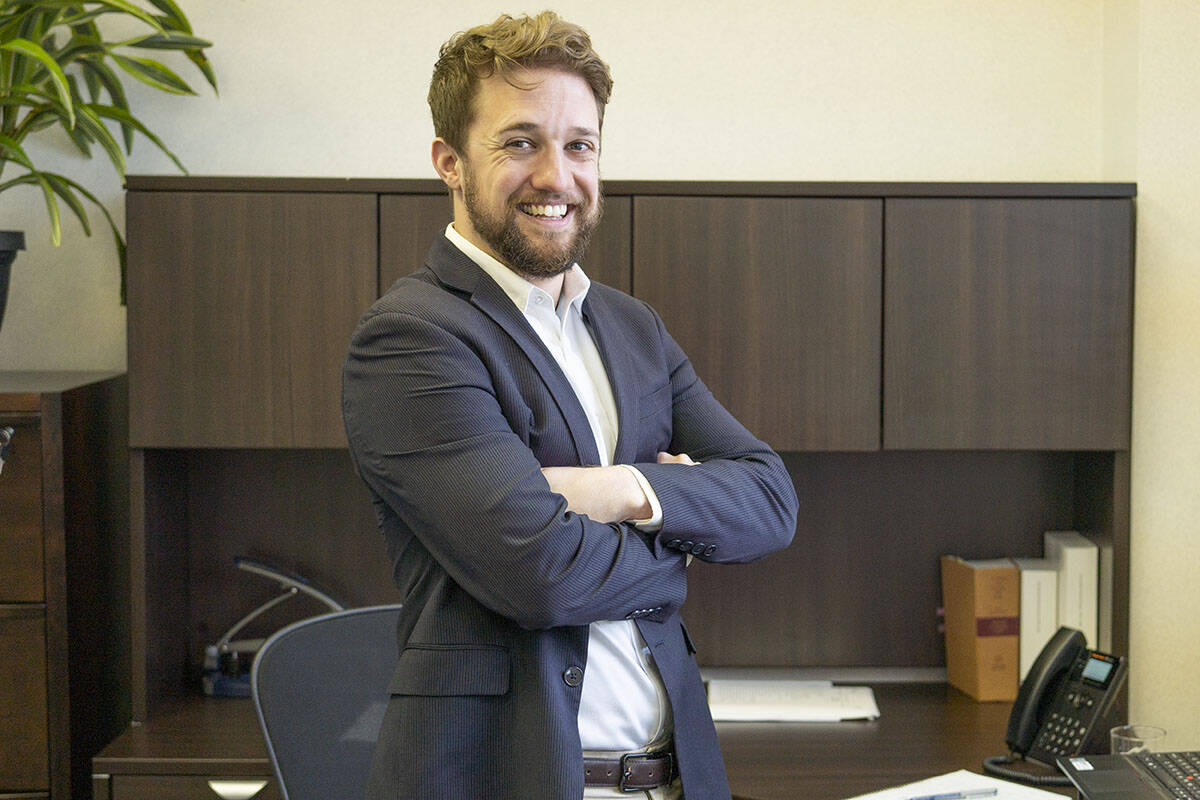The Prince Rupert Indigenous Justice Centre has expanded into its own office to better serve the indigenous community in the North Coast area, just a year after opening.
The Indigenous Justice Centre is one of three centres currently open in the province and runs under the overarching umbrella of the BC First Nations Justice Council.
“The biggest impact we’ve made is making legal services readily available and making them available in a very culturally specific context,” James Leach, a lawyer at the Prince Rupert Indigenous Justice Centre, told The Northern View, on Sept. 14.
The centre, which has been running since July 2020, used to share an office with the Prince Rupert Aboriginal Community Services and offers free legal services to indigenous people in the Prince Rupert and North Coast area, including Haida Gwaii.
“The organization came about in order to address the [over]representation of indigenous people in the criminal justice system and in the child welfare system,” Leach said.
“The justice centres are places where indigenous people can come seek help if they have been charged with a crime or imagine that they are going to be charged with a crime — or if the Ministry of Child and Family Development is involved in their family affairs,” Leach said.
Leach describes his role as the centre’s lawyer as traditional defence work. This entails someone seeking out his legal services, where he is then tasked with finding the best resolution possible. However, that is when the parallels to traditional legal services at their office end.
“What sets our centre apart from some more traditional legal service providers is we have other staff … namely, a community outreach worker,” Leach said.
The centre’s community outreach worker is Rudy Kelly. He assists people who are transitioning out of correctional facilities or other programs by reconnecting them to their band, home area, support services and housing in their own community.
In addition to an outreach worker, the office also has an in-house Gladue worker.
A Gladue worker writes a Gladue report detailing the unique life circumstances of an Indigenous person charged with a criminal offence who is applying for bail and is being sentenced. The Gladue report will link the life story of an Indigenous offender to the broader issues facing Indigenous people. It will provide detailed recommendations for the judge to consider in terms of sentencing.
“The idea behind Gladue healing plans is… reconnection with the community. We try to get input from the band. We try to get input from elders,” Leach said, noting he does not develop the plans.
One of the most ambitious plans for the Indigenous justice centre is to have an in-house elders committee or an elder-in-residence to help give counselling, guidance, advice and input into the plans they develop for their clients.
Their future plan for the centre is to have at least one Indigenous elder working in the office daily to work with their lawyer. This will enable work with their individual clients to create a plan for healing, reconnecting to the community and even provide traditional counselling in a culturally familiar way, Leach said.
“That’s really a foundational piece having the elders work out of our office. It’s unique. It’s not something that happens in the traditional law office,” Leach said.
Â
Norman Galimski | JournalistÂ
Send Norman email
Like the The Northern View on Facebook
Follow us on Twitter

